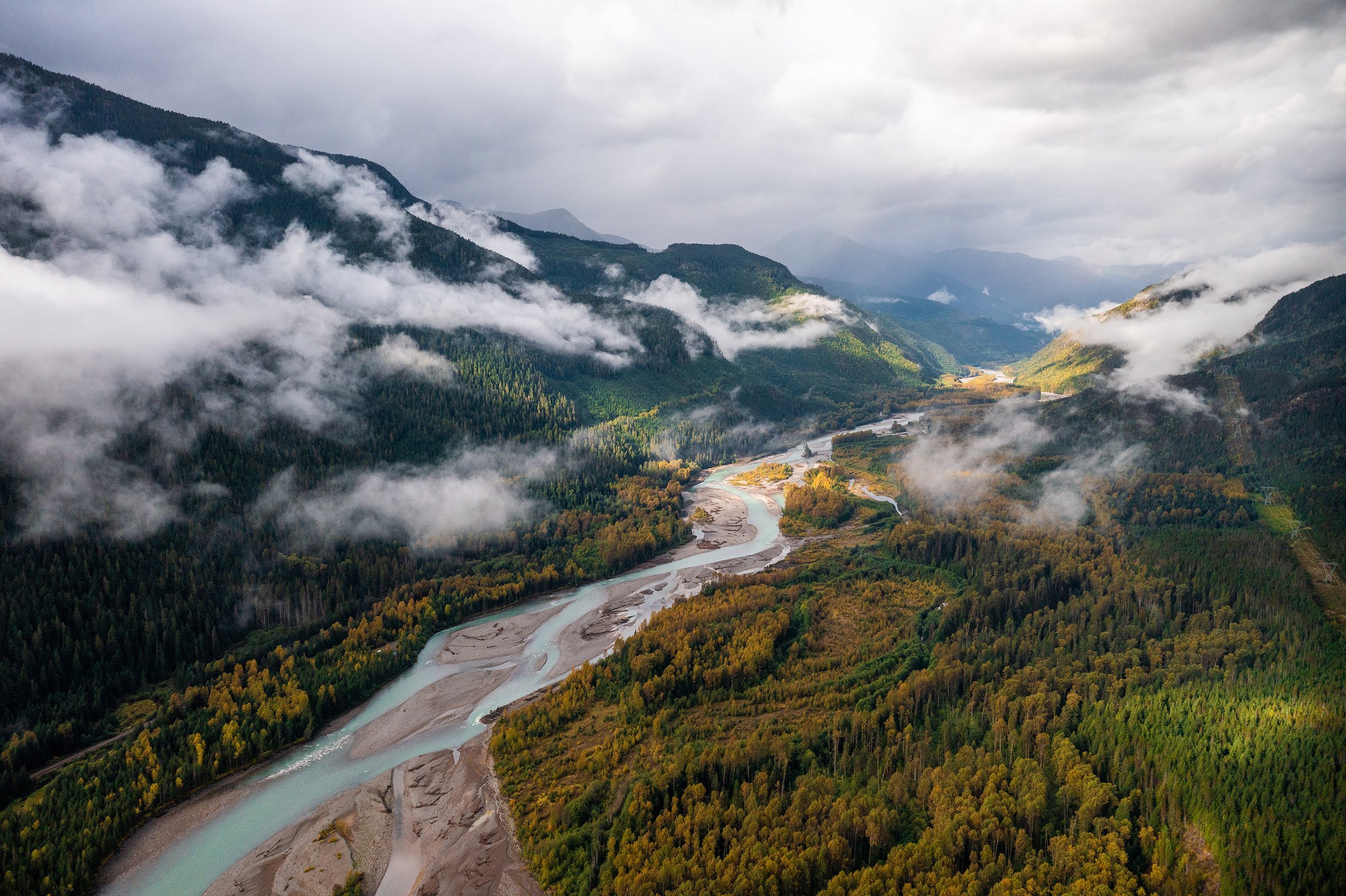
About IWI
OUR STORY
The Indigenous Watersheds Initiative (IWI) was a three-year initiative (2022–2025) that funded and supported First Nations communities in British Columbia working to advance their vision of watershed health and security. IWI supported a model of watershed security rooted in long-term resilience, local values, and Indigenous Rights and Title. These funds supported 49 Indigenous-led and co-led projects across B.C. that advanced watershed priorities for healthy ecosystems and communities in alignment with the United Nations Declaration on the Rights of Indigenous Peoples (UNDRIP).
IWI was delivered through a partnership of MakeWay Foundation and Watersheds BC, with a $15 million investment from the provincial government. The funding helped communities to support, protect, and restore critical freshwater ecosystems, build climate resiliency, create jobs, undertake training, and protect drinking water. This watershed work also supported First Nations watershed leadership, (re)connected with land and water, built intergenerational connections, and strengthened Indigenous-led organizations. The IWI team also supported peer learning and regional convening to create opportunities to build capacity and connections within and across watershed boundaries.
With the guidance of Indigenous Advisors, IWI granted nearly $12 million to support projects protecting and restoring watersheds and ecosystems, (re)connecting with land and waters, and strengthening intergenerational connections and organizational capacity. IWI ran until March 2025, with ongoing work including supporting project teams through peer learning opportunities and sharing project impacts. To learn more about IWI-supported projects, visit the Projects page.
The Indigenous Watersheds Initiative logo was designed by
Gitxsan artist Timothy Foster.
Thank you for your beautiful work, Timothy.
BACKGROUND
The Indigenous Watersheds Initiative (IWI) fund was built on the successes of the Healthy Watersheds Initiative (HWI), a $27 million investment in BC's watersheds funded through the Stronger BC Economic Program. This initiative was delivered by the Real Estate Foundation of BC with support from Watersheds BC. Guided by an Indigenous Leaders Advisory Circle (ILAC), 31% of HWI projects received direct grants for Indigenous-led organizations. The work done by communities and the leadership of ILAC laid the foundation for IWI when $30 million in funding for watershed security was announced in 2021 by the Province of BC. Of this, $15 million was allocated to create IWI and these funds are now being directed into communities through a partnership between Watersheds BC and MakeWay. Several projects from HWI are continuing to receive funding through Round One of IWI.
PARTNERS
MakeWay Foundation and Watersheds BC are stewarding $15 million of provincial funding through the Indigenous Watersheds Initiative (IWI). Together, they are developing and implementing the Indigenous Watersheds Initiative, including grant making, supporting project teams with peer learning, reporting, regional collaboration, storytelling and connecting people and organizations.
MakeWay is a national charity and public foundation with a goal to enable nature and communities to thrive together. MakeWay does this by building partnerships, providing solutions, grants, and services for the charitable sector across the country. As a grant maker, MakeWay demonstrates lasting commitments supporting Indigenous-led stewardship, watershed health, governance and community-led change. The unique shared platform model is also the operational home for Watersheds BC.
Watersheds BC is a capacity-developing organization that catalyzes, supports, and strengthens local watershed governance and security. Since 2020, Watersheds BC has partnered with philanthropic organizations to deliver initiatives focused on helping advance watershed security, including supporting the the Healthy Watersheds Initiative and the Indigenous Watersheds Initiative.

